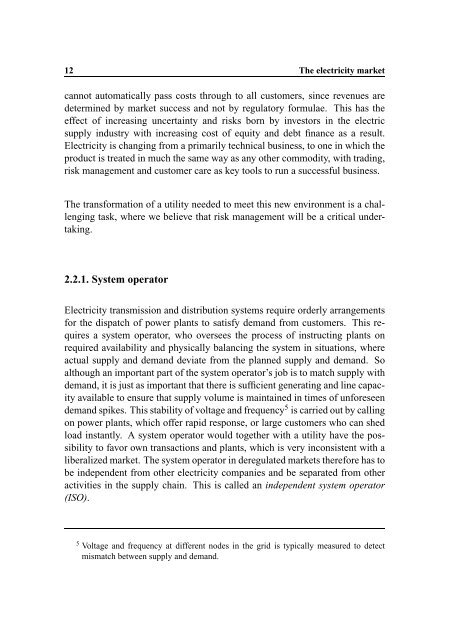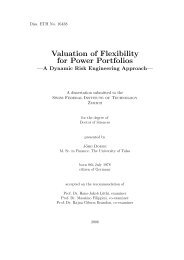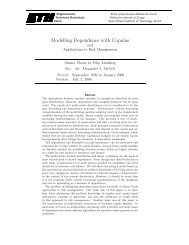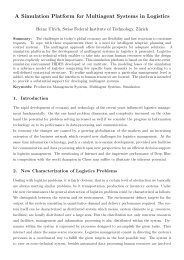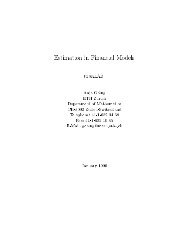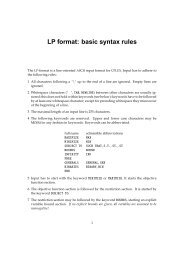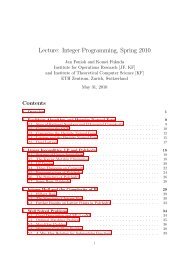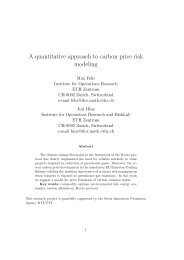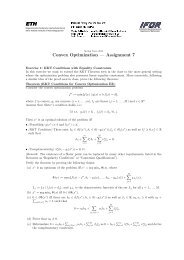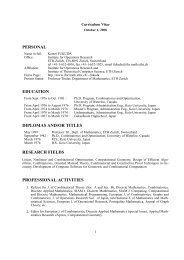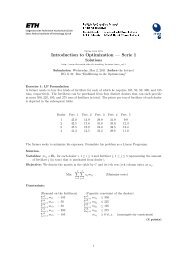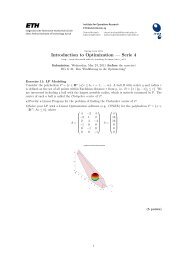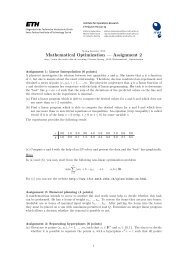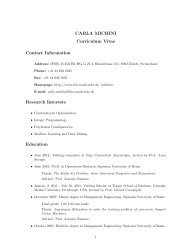Hedging Strategy and Electricity Contract Engineering - IFOR
Hedging Strategy and Electricity Contract Engineering - IFOR
Hedging Strategy and Electricity Contract Engineering - IFOR
You also want an ePaper? Increase the reach of your titles
YUMPU automatically turns print PDFs into web optimized ePapers that Google loves.
12 The electricity market<br />
cannot automatically pass costs through to all customers, since revenues are<br />
determined by market success <strong>and</strong> not by regulatory formulae. This has the<br />
effect of increasing uncertainty <strong>and</strong> risks born by investors in the electric<br />
supply industry with increasing cost of equity <strong>and</strong> debt finance as a result.<br />
<strong>Electricity</strong> is changing from a primarily technical business, to one in which the<br />
product is treated in much the same way as any other commodity, with trading,<br />
risk management <strong>and</strong> customer care as key tools to run a successful business.<br />
The transformation of a utility needed to meet this new environment is a challenging<br />
task, where we believe that risk management will be a critical undertaking.<br />
2.2.1. System operator<br />
<strong>Electricity</strong> transmission <strong>and</strong> distribution systems require orderly arrangements<br />
for the dispatch of power plants to satisfy dem<strong>and</strong> from customers. This requires<br />
a system operator, who oversees the process of instructing plants on<br />
required availability <strong>and</strong> physically balancing the system in situations, where<br />
actual supply <strong>and</strong> dem<strong>and</strong> deviate from the planned supply <strong>and</strong> dem<strong>and</strong>. So<br />
although an important part of the system operator’s job is to match supply with<br />
dem<strong>and</strong>, it is just as important that there is sufficient generating <strong>and</strong> line capacity<br />
available to ensure that supply volume is maintained in times of unforeseen<br />
dem<strong>and</strong> spikes. This stability of voltage <strong>and</strong> frequency 5 is carried out by calling<br />
on power plants, which offer rapid response, or large customers who can shed<br />
load instantly. A system operator would together with a utility have the possibility<br />
to favor own transactions <strong>and</strong> plants, which is very inconsistent with a<br />
liberalized market. The system operator in deregulated markets therefore has to<br />
be independent from other electricity companies <strong>and</strong> be separated from other<br />
activities in the supply chain. This is called an independent system operator<br />
(ISO).<br />
5 Voltage <strong>and</strong> frequency at different nodes in the grid is typically measured to detect<br />
mismatch between supply <strong>and</strong> dem<strong>and</strong>.


